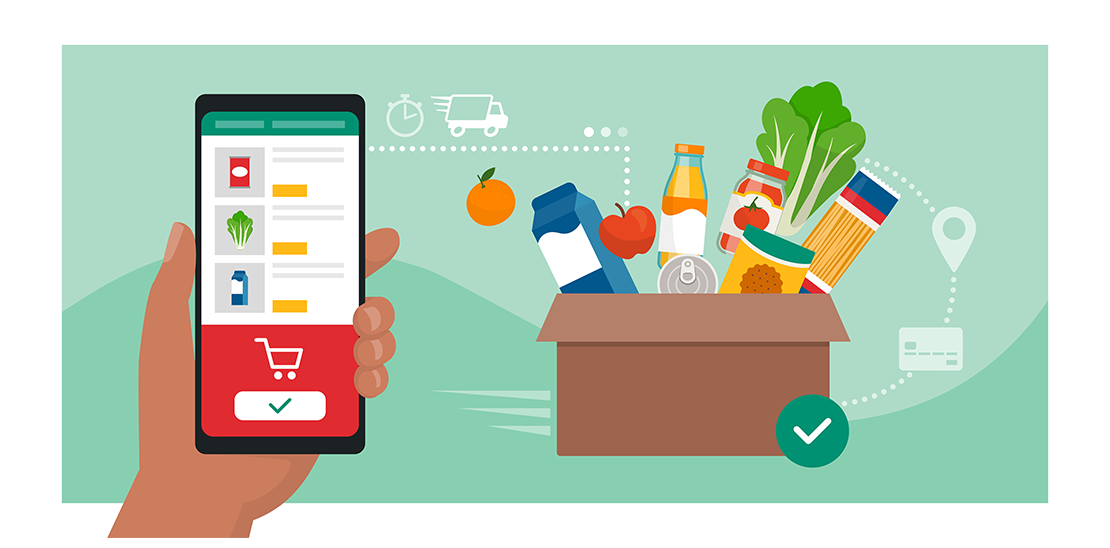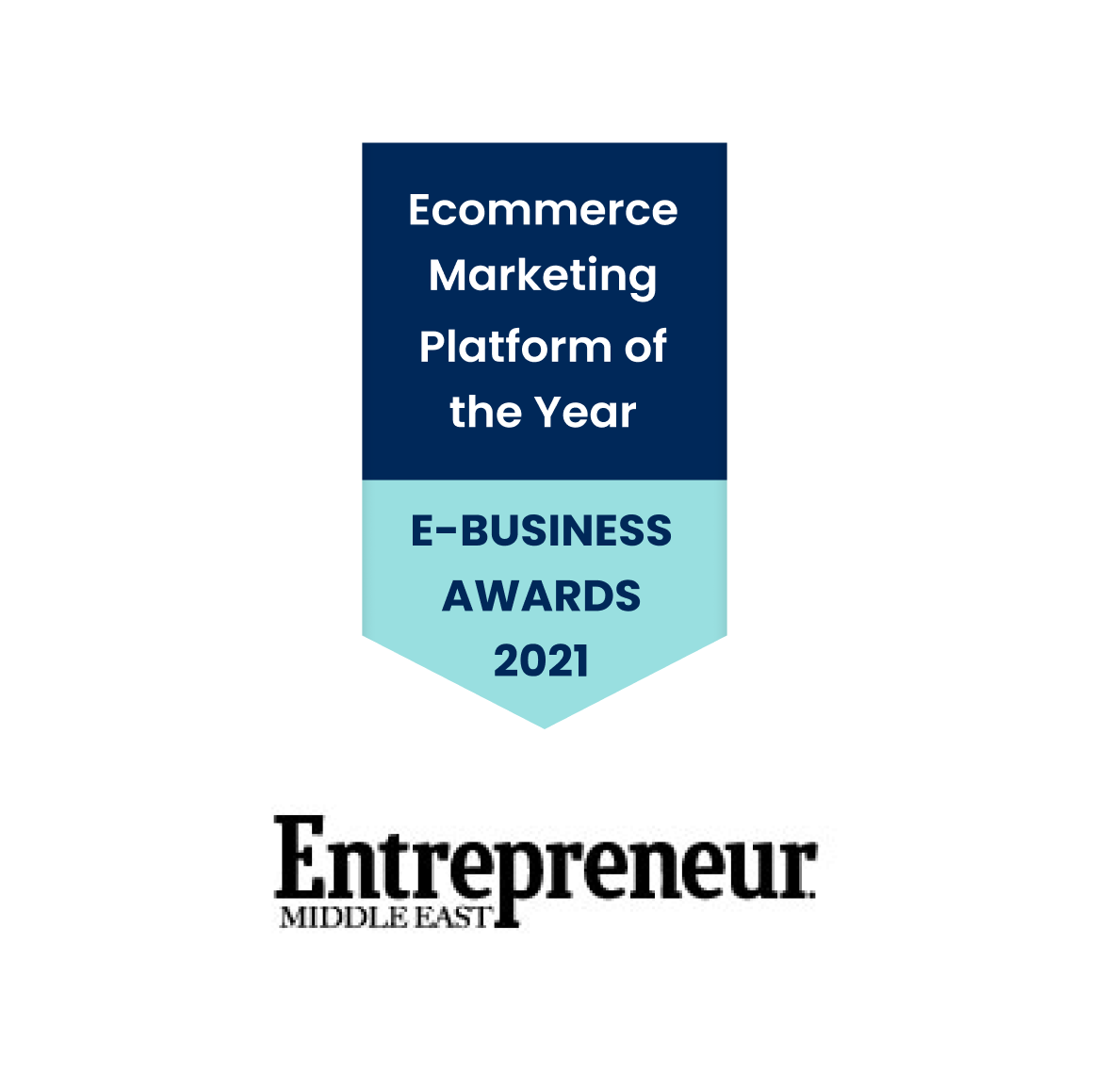
Here’s Why Online Shelf Space is Essential for FMCG Brands
ritelo_admin | April 3, 2024
Share via
In the dynamic realm of consumer goods, the digital shelf has emerged as an indispensable arena for FMCG (Fast-Moving Consumer Goods) brands. As the e-commerce sector continues its rapid expansion, particularly in regions like the MENA market, the strategic significance of securing online shelf space has become increasingly apparent. In this comprehensive exploration, we delve into the critical role of online shelf space for FMCG brands, scrutinizing its impact on brand loyalty, the strategic imperative of digital shelf ownership, and how retail media advertising amplifies brand exposure at pivotal consumer touchpoints.
Deciphering the Nuances of the MENA Market Dynamics
The MENA market presents a multifaceted landscape for FMCG brands, characterized by diverse consumer preferences, rapidly evolving digital trends, and a burgeoning e-commerce sector. With a sizable population of digitally savvy consumers, brands operating in the region acknowledge the necessity of establishing a robust online presence to remain competitive and capture market share effectively.
Diverse Consumer Preferences: The MENA region encompasses a diverse array of cultures, languages, and consumer behaviors, necessitating a nuanced approach to online shelf space strategy.
Rapidly Evolving Digital Trends: The digital landscape in the MENA market is dynamic, with trends evolving rapidly, necessitating agile strategies to adapt to changing consumer preferences.
Burgeoning E-commerce Sector: E-commerce is experiencing exponential growth in the MENA region, driven by factors such as increased internet penetration, rising smartphone adoption, and shifting consumer shopping habits.
Digitally Savvy Consumers: MENA consumers are increasingly turning to digital channels for shopping, seeking convenience, variety, and competitive pricing.
Importance of Robust Online Presence: Establishing a robust online presence is crucial for FMCG brands in the MENA market to effectively engage with consumers and capitalize on the growing e-commerce opportunities.
The Integral Role of Brand Loyalty in FMCG Success
Brand loyalty stands as a cornerstone of success for FMCG brands, particularly within the online domain. In a market saturated with choices, consumers gravitate towards brands they trust and have had positive experiences with. Fostering and nurturing brand loyalty not only drives repeat purchases but also enables brands to differentiate themselves amidst fierce competition, fostering enduring relationships with their consumer base.
Consumer Trust and Confidence: Building trust and confidence in the brand is essential to cultivating long-term loyalty among consumers in the FMCG sector.
Positive Consumer Experiences: Delivering positive experiences across all touchpoints, from product quality to customer service, is instrumental in fostering brand loyalty.
Consistent Brand Messaging: Consistency in brand messaging and values helps reinforce consumer perceptions and strengthen brand loyalty over time.
Rewarding Loyalty: Rewarding loyal customers with exclusive offers, discounts, and personalized experiences fosters a sense of appreciation and strengthens brand affinity.
Community Engagement: Engaging with consumers through community-building initiatives, social media interactions, and user-generated content fosters a sense of belonging and strengthens brand loyalty among FMCG consumers.
Also read: The Power of Retail Media Advertising for Marketplace Sellers
Owning Digital Shelf Space: A Strategic Imperative for FMCG Brands
Owning digital shelf space is a strategic imperative for FMCG brands striving to excel in the competitive online retail landscape. Unlike traditional retail environments where physical shelf placement is paramount, the digital shelf offers brands a leveled playing field to showcase their products to consumers. By securing prominent placement on e-commerce platforms, brands enhance their visibility, drive product discovery, and ultimately catalyze sales growth.
Visibility and Product Discovery: Securing prime placement on e-commerce platforms increases visibility and enhances the likelihood of product discovery among online shoppers.
Competitive Advantage: Owning digital shelf space provides FMCG brands with a competitive advantage, allowing them to stand out amidst a crowded marketplace and capture consumer attention.
Brand Representation: Digital shelf space serves as a representation of the brand identity and values, influencing consumer perceptions and purchase decisions.
Optimized Product Visibility: Strategically optimizing product listings with compelling imagery, detailed descriptions, and user reviews maximizes product visibility and enhances consumer engagement.
Data-Driven Insights: Leveraging data analytics and insights from digital shelf performance enables brands to refine their online strategies, optimize product assortment, and drive continuous improvement in online sales performance.
Maximizing Brand Exposure through Retail Media Advertising
Retail media advertising has emerged as a powerful tool for FMCG brands to amplify brand exposure at critical junctures along the consumer journey. By harnessing retail media platforms offered by e-commerce giants, brands can strategically target consumers with relevant advertisements while they are actively browsing and making purchasing decisions online. This targeted approach not only increases the likelihood of conversion but also provides brands with valuable insights to refine and optimize their advertising strategies effectively.
Targeted Advertising: Retail media advertising allows FMCG brands to target consumers with precision, reaching them at crucial points in their shopping journey and influencing purchase decisions.
Contextual Relevance: By aligning advertisements with relevant product categories and consumer interests, retail media advertising enhances contextual relevance and resonates with target audiences.
Measurable Impact: Retail media platforms provide robust analytics and measurement tools, enabling brands to track the performance of their advertising campaigns in real-time and optimize strategies for maximum impact.
Enhanced Consumer Engagement: Engaging consumers with immersive ad formats, interactive content, and personalized recommendations increases consumer engagement and drives higher conversion rates.
Strategic Partnerships: Collaborating with e-commerce platforms and retailers to leverage retail media opportunities fosters strategic partnerships and unlocks access to exclusive advertising inventory, maximizing brand exposure and driving business growth.
Also read: A Guide to Maximizing Retail Media Advertising Spends in Ecommerce
Key Trends Shaping the Future of Online Shelf Space
Looking ahead, several key trends are reshaping the landscape of online shelf space for FMCG brands, influencing consumer behaviors, and transforming the digital retail experience. These include the rise of mobile commerce, the growing influence of social commerce, and the increasing demand for personalized shopping experiences. Brands that adeptly adapt to these trends and prioritize their digital shelf presence stand poised to seize the opportunities presented by the ever-evolving e-commerce ecosystem.
Mobile Commerce: The proliferation of smartphones and mobile devices has fueled the growth of mobile commerce, creating new opportunities for FMCG brands to engage with consumers on-the-go and drive mobile-first shopping experiences.
Social Commerce: The integration of social media platforms with e-commerce functionalities has given rise to social commerce, enabling brands to leverage social channels for product discovery, influencer partnerships, and seamless shopping experiences.
Personalization and Customization: Consumers increasingly seek personalized shopping experiences tailored to their preferences, driving demand for customized product recommendations, personalized promotions, and interactive shopping features.
Voice Commerce: The adoption of voice-enabled devices and virtual assistants is reshaping the way consumers shop online, presenting new opportunities for FMCG brands to engage with consumers through voice-activated search, voice-driven recommendations, and voice-enabled transactions.
Sustainability and Ethical Consumption: Growing awareness of environmental issues and ethical considerations is influencing consumer purchasing decisions, driving demand for sustainable products, eco-friendly packaging, and brands with a strong commitment to corporate social responsibility.
Online shelf space transcends mere utility—it embodies a strategic imperative for FMCG brands operating within the MENA market and beyond. By placing an emphasis on cultivating brand loyalty, owning digital shelf space, and harnessing the power of retail media advertising, brands can elevate their visibility, drive sales, and assert their dominance in the dynamic realm of e-commerce.
Share via







